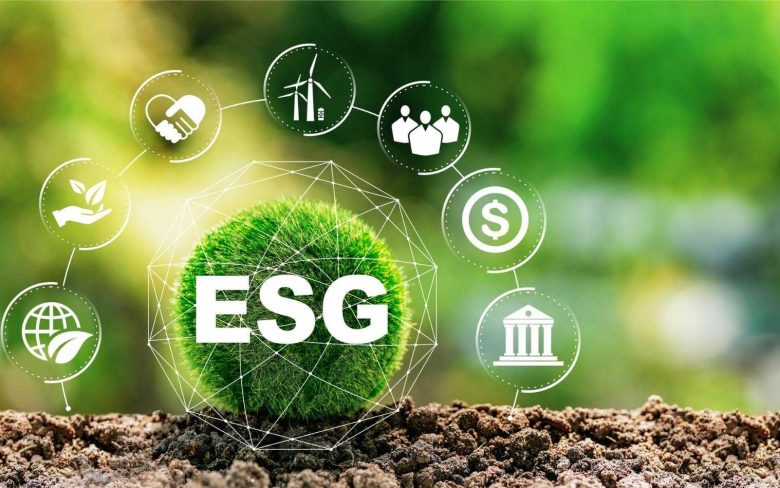Investing in environmental, social, and governance (ESG) issues has evolved from a niche strategy to a mainstream financial strategy, changing the way investors view opportunities and approaches. This shift reflects a growing awareness that sustainable business practices are often associated with better long-term financial performance and lower risks. As issues like climate change, social injustice, and poor corporate governance gain traction globally, investors are demanding greater transparency and accountability from the companies they support.
Integrating ESG factors into investment decisions is a significant shift because it means focusing on the impact for all stakeholders, not just short-term returns. To stay ahead of the evolving landscape of sustainable finance and seize new opportunities to combine profitability with world improvement, investors, executives, and regulators must understand this dynamic.
The Growth of ESG Investing:
The rise of ESG investing is remarkable. In 2020, global assets in sustainable investments exceeded $35 trillion, a 15% increase from 2018. Shifting investor preferences, regulatory pressure, and growing evidence that ESG factors can enhance long-term risk-adjusted returns are driving this growth. Much of this demand comes from younger investors, particularly millennials and Gen Z, who seek to invest in assets that align with their ideals and long-term societal visions.
Institutional investors, such as pension funds and sovereign wealth funds, have also embraced ESG principles, recognizing that environmental and social factors are crucial to the long-term success of their portfolios. The COVID-19 pandemic has accelerated this trend, highlighting the importance of strong business models, stakeholder capitalism, and organizations that prioritize the well-being of their employees and communities in times of crisis.
Key Elements of ESG:
Environmental factors include how a company impacts climate change, how it uses resources, how it manages waste, and how it protects biodiversity. Companies are increasingly being assessed on their carbon emissions, energy efficiency measures, water consumption, and commitment to renewable energy. Social criteria examine how a company treats its employees, suppliers, consumers, and communities. These criteria include workplace diversity, labor regulations, product safety, and programs that support community development.
Governance issues include corporate leadership, CEO compensation, shareholder rights, transparency, and ethical business practices. A strong governance framework ensures that companies are accountable for making decisions that benefit all stakeholders. Together, these three pillars provide a comprehensive picture of a company’s sustainability and its ability to create long-term value.
The Benefits of Sustainable Investing:
Research consistently shows that companies with a strong ESG profile tend to outperform their competitors over the long term, especially during market downturns. Sustainable business practices make them more resilient. These companies typically experience less volatility, lower regulatory risks, and improved stakeholder relationships, allowing them to thrive in the long term. Sustainable investing can help diversify your portfolio, as ESG experts often focus on emerging and growing sectors such as clean technology, renewable energy, and sustainable agriculture.
ESG investing can help identify companies at risk of future regulatory violations, brand damage, or operational problems due to environmental or social issues. Sustainable investing also allows individuals and organizations to align their portfolios with their personal values while potentially achieving higher returns. This provides them a sense of purpose and satisfaction that goes beyond just profit.
Issues and Criticisms:
While ESG investing is gaining momentum, it still presents practical challenges that investors must be aware of and address. Standardization remains a significant issue, as different rating agencies and frameworks sometimes assign different ESG scores to the same company, making comparison and selection difficult. Another concern is the phenomenon of “greenwashing,” where companies misrepresent their environmental performance without actually changing their operations.
Some critics argue that ESG investing can sacrifice financial returns for social impact, but a growing body of research suggests that this trade-off isn’t always necessary. Data quality and availability pose another challenge, particularly for smaller companies or in emerging markets, where ESG reporting can be incomplete or even nonexistent. Moreover, due to the subjective nature of some ESG criteria, investors may disagree about what constitutes sustainable practices. Such disagreements can lead to divergent ESG investment strategies and outcomes.
The Future of ESG:
ESG investing is likely to continue to grow and become more complex as technology, regulation, and investor demand combine to create new opportunities and standards. Artificial intelligence and big data analytics are making it easier to collect and analyze ESG data, which helps quantify a company’s sustainability and impact performance. Regulatory frameworks are evolving globally. For example, the EU Sustainable Finance Disclosure Regulation mandates ESG reporting, which will provide greater clarity and better comparability.
Impact investing, which aims to achieve demonstrable social and environmental benefits in addition to financial returns, is emerging as investors seek more immediate solutions to global problems. We expect climate-focused investing to continue growing as the consequences of climate change become clearer and more urgent. As asset managers create better tools and methods to include sustainability issues in regular financial analysis, using ESG factors in typical investment processes will become more common.
Conclusion:
ESG investing is not a fad; it represents a significant shift in how we think about value creation, risk management, and the role of business in society. As environmental problems worsen and social divides increase, integrating environmental, social, and governance (ESG) considerations into investment choices is becoming increasingly important for long-term success.
Investors who understand and adhere to these principles can better identify opportunities, mitigate risks, and create a positive impact while achieving their financial goals. Those who can strike a balance between making money and doing charitable work will thrive in the future. This is because adopting a sustainable business approach is not only morally sound but also a smart move in an increasingly interconnected and challenging world.
FAQs:
1. What does ESG mean? Why is it so important?
When investors are keen to know more about a company (beyond just its financials), they look at environmental, social, and governance (ESG) factors. These criteria are crucial because they often indicate a company’s longevity and can significantly impact its future financial performance and risk profile.
2. Do ESG investments generally yield lower returns than conventional investments?
Many studies have shown that ESG investing often performs as well as or better than conventional investments over the long term, especially during market downturns when sustainable companies are more resilient. It contradicts common perceptions.
3. How can someone interested in ESG investing get started?
Individual investors can begin their journey by exploring ESG-focused mutual funds or ETFs, utilizing online screening tools to evaluate individual stocks based on ESG criteria, or collaborating with a financial advisor who is knowledgeable about sustainable investment strategies.
4. How does ESG investing differ from impact investing?
ESG investing focuses not only on standard investment factors, like risk and opportunity, but also on environmental and social factors. Impact investing, on the other hand, focuses on investments that can both change the world and generate returns.
5. Is there a reliable way to measure an organization’s ESG performance?
Several rating agencies, such as MSCI, Sustainalytics, and Refinitiv, offer ESG scores, but these can vary. When evaluating a company’s own sustainability reports and third-party certifications, it’s important for investors to consult multiple sources and understand how they obtain their information.




